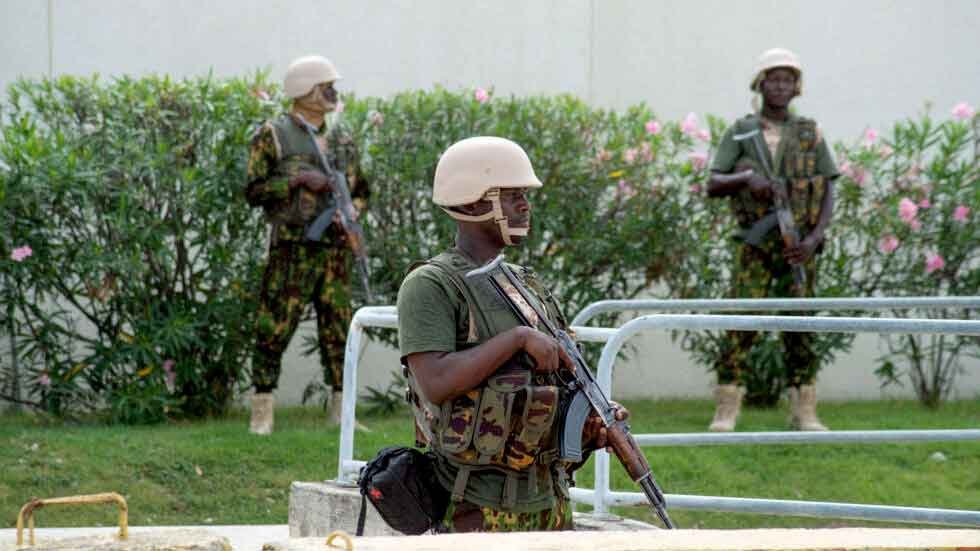Kenya, the East African country leading the multinational mission to combat rampant violence on the crime-plagued Caribbean island, has so far sent 400 police officers there.
The 600 additional police officers Kenya has pledged for a multinational security support mission in Haiti will be ready to deploy in early November, the Kenyan police chief announced yesterday. Kenyan President William Ruto promised these reinforcements on Friday after a meeting with Haiti’s interim Prime Minister Garry Conille.
Both leaders called on the international community to do more. “A contingent of 600 police officers will soon join the Kenyan police already deployed in Haiti after completing pre-deployment training,” Police Chief Douglas Kanja said. “Once this training is completed, the police officers will be ready from the beginning of next month,” he added during a press conference with Mr. Conille.
Kenya, the East African country leading the multinational mission to combat rampant violence on the crime-plagued Caribbean island, has so far sent 400 police officers there. Speaking about concerns about salary delays for officials already deployed to Haiti, Mr. Kanja that “the payment problem is solved and the police officers are happy.” On Friday, Mr Ruto called on the international community to “urgently” rally behind this mission, which faces a glaring lack of funding and equipment. Mr. Conille had launched the same appeal.
The Haitian Prime Minister’s visit comes a week after a gang killing on the island left 109 people dead and more than forty injured. Members of an armed gang fired automatic rifles at residents of the town of Pont-Sondé, located about 100 km northwest of the capital Port-au-Prince, burning dozens of houses and vehicles.
The UN Security Council extended the multinational police mission for another year last month without mentioning its possible transformation into a UN force as desired by the country’s new authorities. Haiti has long suffered from violence by armed groups, which control 80% of Port-au-Prince and the country’s main roads. At least 3,661 people have been killed since January 2024 in Haiti, according to a figure cited in late September by the United Nations High Commissioner for Human Rights.
Where is Haiti?
Haiti, in long form the Republic of Haiti (in Haitian Creole: Ayiti, in long form Repiblik d’Ayiti or Repiblik Ayiti), is a state in the Greater Antilles, occupying the western third of the island of Hispaniola (i.e. 27,750 approx. km2) , the eastern two-thirds is occupied by the Dominican Republic. Its capital is Port-au-Prince and its highest point is La Selle peak (2680 m above sea level). Haiti is the only independent French-speaking territory in the Caribbean, of which it is also the most populous country.
